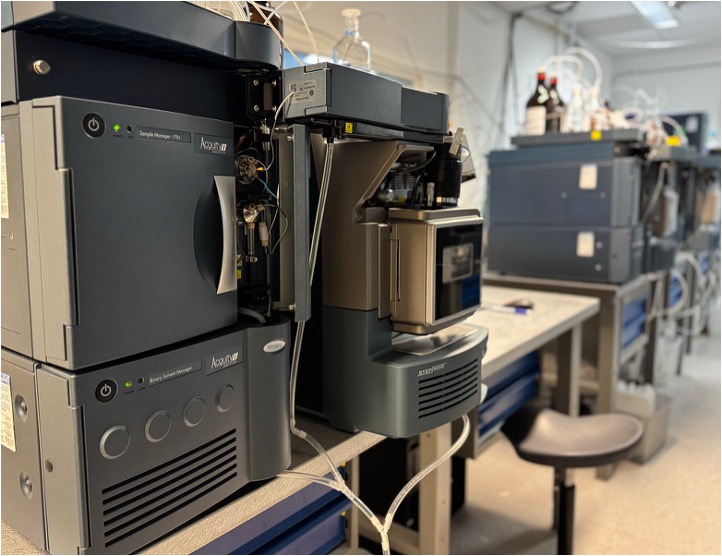- Other Products
- CCP
LC-MS/MS (Liquid Chromatography–Tandem Mass Spectrometry) is a powerful analytical technique widely used in bioanalytical laboratories for the quantitative and qualitative analysis of small molecules (e.g., drugs, metabolites) and large molecules (e.g., peptides, proteins, and biologics). Its use spans pharmacokinetics (PK), bioequivalence studies, and biomarker quantitation. Advanced LC-MS systems offer higher sensitivity and selectivity, making them pivotal for regulated bioanalysis.
LC-MS/MS is widely used in pharmaceuticals, clinical diagnostics, food safety, and environmental analysis due to its accuracy and sensitivity.
Applications for Small Molecules
Applications for Large Molecules

Advantages of LC-MS/MS